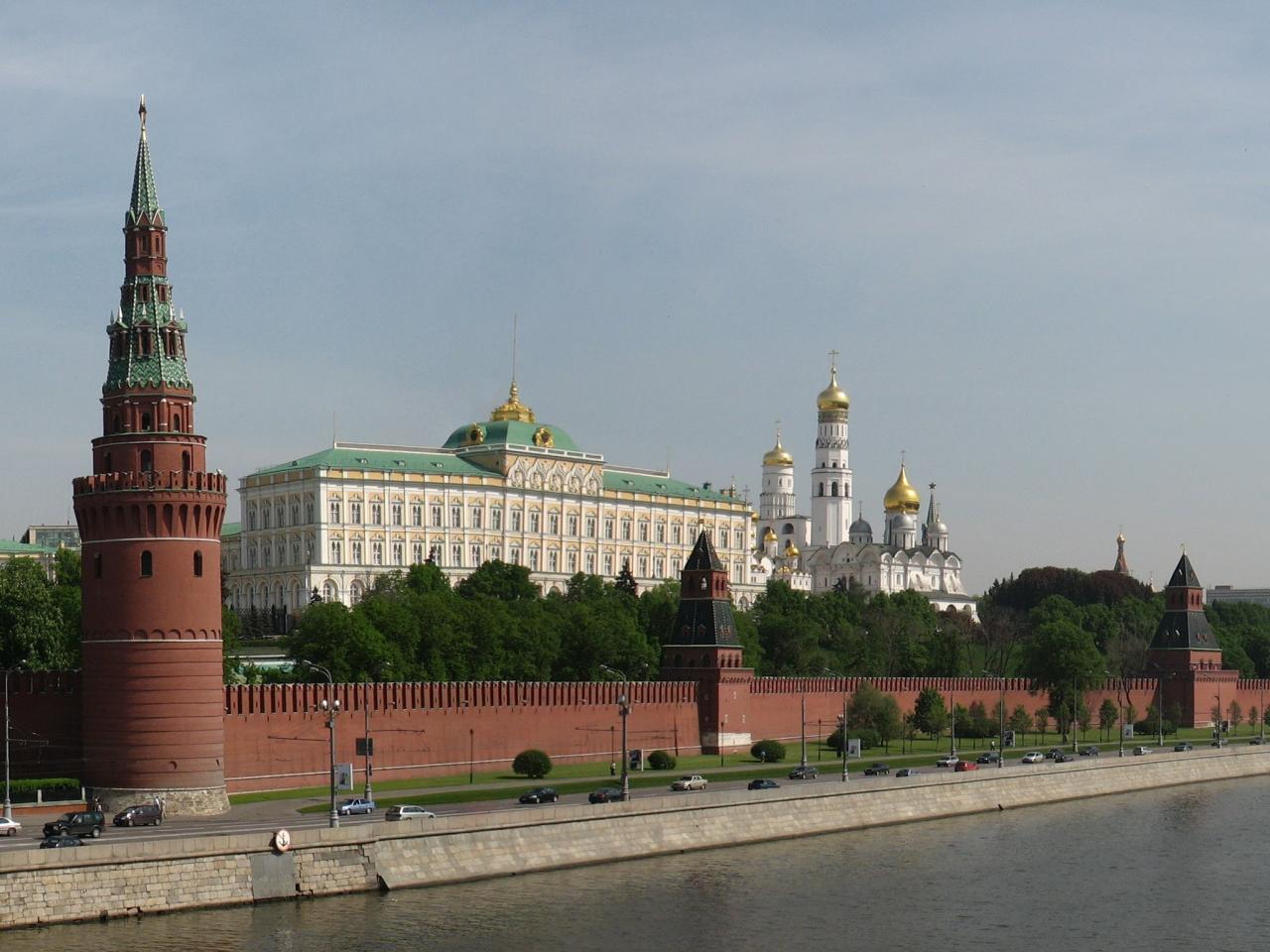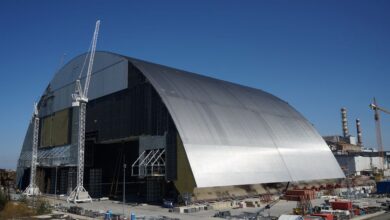
How to Prevent Strongmen From Hijacking Anti-Corruption Efforts
How to prevent strongmen from hijacking the fight against dodgy money? It’s a question that keeps me up at night. We’ve all seen it – the charismatic leader promising change, only to consolidate power and line their own pockets. This isn’t just about some far-off dictatorship; the tactics of these “strongmen” are adaptable and insidious, threatening democracies worldwide.
This post delves into the strategies strongmen use to manipulate systems, and more importantly, how we can fight back and protect the integrity of anti-corruption efforts.
The fight against corruption is a global struggle, but its success is often undermined by powerful individuals who exploit instability to seize control. Understanding how these strongmen operate—from manipulating media narratives to exploiting weaknesses in democratic institutions—is the first step towards building stronger defenses. We’ll explore practical strategies, from strengthening independent judiciaries to fostering international cooperation and empowering civil society, to ensure that the fight against dirty money remains a genuine effort towards a more just and equitable world.
Strengthening Democratic Institutions
Strongmen often leverage weaknesses in democratic institutions to consolidate power and shield their illicit activities. A robust and independent system of checks and balances is crucial to prevent this. Strengthening democratic institutions isn’t just about enacting laws; it’s about fostering a culture of accountability and transparency that actively resists strongman tactics. This requires a multi-pronged approach focusing on independent oversight, transparent processes, and empowered citizens.Strengthening independent judiciaries and law enforcement agencies is paramount to curtailing the influence of strongmen.
A judiciary susceptible to political pressure is easily manipulated, allowing strongmen to evade justice and silence dissent. Similarly, a law enforcement apparatus beholden to the ruling power will not effectively investigate corruption or enforce laws impartially.
Independent Judiciaries and Law Enforcement
A framework for strengthening these institutions requires several key components. First, ensuring judicial independence necessitates secure tenure for judges, protected from political interference. This means implementing robust appointment processes that prioritize merit and experience over political connections. Second, providing adequate funding and resources is essential for effective functioning. Underfunded courts and law enforcement agencies are more vulnerable to corruption and external influence.
Third, promoting specialized training in areas like financial crime investigation is crucial to equip these agencies to tackle sophisticated schemes used by strongmen. Finally, establishing effective oversight mechanisms, such as independent judicial councils and inspectorates, can help monitor performance and address misconduct. For example, the success of the South African Constitutional Court in challenging government overreach demonstrates the vital role of an independent judiciary.
Preventing strongmen from undermining anti-corruption efforts requires robust international cooperation and transparency. A key aspect is ensuring accountability at the highest levels, and this is where the question arises: what concrete policies will leaders like Kamala Harris, who thrills the Democrat faithfuls but what does she stand for , actually implement to combat this? Ultimately, strengthening democratic institutions and independent oversight is crucial to prevent such hijackings.
Transparency and Accountability in Government Finance
Promoting transparency and accountability in government financial processes is crucial for preventing the misuse of public funds. This includes establishing open and accessible public financial records, including budgets, expenditures, and contracts. Regular audits by independent bodies, subject to public scrutiny, are necessary to ensure the accurate reporting of financial transactions. Furthermore, strengthening asset declaration laws and enforcing strict conflict-of-interest regulations for public officials can deter corruption.
A clear and easily navigable online platform for accessing government financial data, like the ones increasingly adopted in Scandinavian countries, would significantly improve public access and accountability.
Protecting Whistleblowers and Journalists
Whistleblowers and journalists play a vital role in exposing corruption and strongmen’s activities. However, they often face significant risks, including threats, intimidation, and even violence. Robust legal frameworks are needed to protect them, including whistleblower protection laws that guarantee anonymity and legal immunity for those reporting wrongdoing. This should be accompanied by dedicated investigative units within law enforcement agencies to handle these sensitive cases and provide adequate support to whistleblowers.
Furthermore, promoting a culture of press freedom and supporting independent media outlets are crucial to ensure a free flow of information and investigative journalism. The case of Julian Assange, though controversial, highlights the critical need for strong legal protections for those who expose sensitive information in the public interest.
Enhancing Civic Education and Media Literacy
Disinformation campaigns are a powerful tool used by strongmen to manipulate public opinion and undermine democratic institutions. Therefore, enhancing civic education and media literacy is essential to empower citizens to critically evaluate information and resist manipulation. This involves incorporating media literacy into school curricula, promoting critical thinking skills, and teaching citizens how to identify and debunk misinformation. Investing in independent fact-checking organizations and supporting media literacy initiatives can equip citizens with the tools to discern credible sources from propaganda.
The success of fact-checking initiatives in countering false narratives during elections in several European countries exemplifies the effectiveness of this approach.
Fostering International Cooperation

The fight against illicit finance fueling strongmen’s regimes requires a concerted global effort. Isolated actions by individual nations are insufficient; a robust, coordinated international response is crucial to effectively dismantle these networks and promote genuine democratic governance. This necessitates a multifaceted approach encompassing information sharing, collaborative sanctions, and the strengthening of international legal frameworks.International collaboration is paramount in disrupting the financial flows that empower authoritarian leaders.
Effective monitoring and sanctioning of individuals and entities involved in supporting strongmen’s activities demand a shared intelligence network and a willingness to act in concert. This goes beyond simply identifying suspicious transactions; it requires a deep understanding of the complex web of shell companies, offshore accounts, and corrupt intermediaries used to launder money and evade sanctions.
International Organizations’ Role in Supporting Democratic Institutions and the Rule of Law
International organizations play a vital role in bolstering democratic institutions and the rule of law globally. Bodies like the United Nations, the Organisation for Economic Co-operation and Development (OECD), and the Financial Action Task Force (FATF) provide platforms for information sharing, technical assistance, and the development of international standards aimed at combating corruption and illicit financial flows. For instance, the UN Convention Against Corruption (UNCAC) sets a global standard for anti-corruption measures, while the FATF develops recommendations to combat money laundering and terrorist financing, both of which are often intertwined with the activities of strongmen and their cronies.
These organizations also provide crucial support to countries seeking to strengthen their own anti-corruption institutions, offering training, capacity building, and expertise in areas such as asset recovery and financial investigation. The effectiveness of these organizations hinges on the commitment of member states to implement their recommendations and cooperate fully in investigations and enforcement actions.
Protecting the fight against dirty money from strongmen requires a multi-pronged approach. A key element is ensuring fair and transparent elections, which is why the statement by an Arizona county supervisor, respect election officials to preserve democracy says an arizona county supervisor , is so crucial. Respecting election integrity prevents strongmen from undermining the very systems designed to hold them accountable, safeguarding the fight against illicit finance.
Coordinating Sanctions and Asset Recovery Efforts
The coordinated implementation of sanctions and asset recovery efforts is crucial for weakening the financial power of strongmen. Unilateral sanctions, while impactful, can be circumvented. A coordinated approach, where multiple countries simultaneously impose sanctions and freeze assets, significantly reduces the ability of strongmen to access and utilize their ill-gotten gains. Furthermore, effective asset recovery requires international cooperation to trace and seize assets hidden in offshore accounts and complex financial structures.
The sharing of intelligence and legal assistance between jurisdictions is essential for successful asset recovery efforts, ensuring that recovered assets are returned to their rightful owners or used to support development and good governance in the affected countries. Examples of successful coordinated sanctions include those imposed on individuals associated with the Assad regime in Syria, where multiple countries have collaborated to freeze assets and restrict access to the international financial system.
Comparison of International Legal Frameworks for Combating Corruption and Prosecuting Human Rights Abuses
Several international legal frameworks exist to combat corruption and prosecute human rights abuses linked to strongmen’s activities. These frameworks vary in their scope, enforcement mechanisms, and effectiveness. The Rome Statute of the International Criminal Court (ICC), for example, provides a mechanism for prosecuting individuals responsible for war crimes, crimes against humanity, and genocide, including those committed by strongmen and their associates.
However, the ICC’s jurisdiction is limited and dependent on the cooperation of states. Other frameworks, such as the UN Convention Against Torture and the UN International Covenant on Civil and Political Rights, establish international human rights standards, while regional agreements, such as the European Convention on Human Rights, offer additional legal recourse for victims of human rights violations. The effectiveness of these frameworks depends on the political will of states to cooperate and enforce them, as well as the availability of resources and expertise to investigate and prosecute cases.
The challenge lies in bridging the gap between international legal standards and their effective implementation on the ground.
Empowering Civil Society: How To Prevent Strongmen From Hijacking The Fight Against Dodgy Money

Civil society, encompassing a diverse range of non-governmental organizations (NGOs), community groups, and independent media, plays a crucial role in holding power accountable and preventing the rise of strongmen. Empowering these actors is vital in safeguarding democracy and preventing the hijacking of anti-corruption efforts. A robust civil society acts as a check on government actions, promotes transparency, and advocates for reforms, creating a more resilient environment resistant to authoritarian takeover.Empowering civil society requires a multi-pronged approach focusing on strengthening their capacity, protecting their independence, and fostering collaboration.
This involves providing resources, training, and legal protections while simultaneously tackling the systemic challenges that hinder their effectiveness. A strong and independent civil society is the bedrock of a healthy democracy.
Strategies for Empowering Civil Society Organizations
Effective strategies for empowering civil society organizations to monitor government activities and advocate for reforms include providing financial and technical assistance, promoting capacity building through training programs, and advocating for legal reforms that protect their operational space. This also involves fostering collaboration between different civil society organizations and ensuring access to information. For example, providing grants for investigative journalism projects or offering training on data analysis techniques can significantly enhance their ability to monitor government spending and expose corruption.
Furthermore, legal reforms guaranteeing freedom of association and assembly are essential to protect civil society from government interference.
Examples of Successful Civil Society Initiatives
Numerous examples demonstrate the power of civil society in resisting authoritarian tendencies. The anti-apartheid movement in South Africa, for instance, relied heavily on a vibrant network of civil society organizations to mobilize public opinion, organize protests, and advocate for change. Similarly, the Solidarity movement in Poland played a key role in challenging communist rule through its extensive network of grassroots organizations.
These movements effectively leveraged their collective power to counter state repression and ultimately contribute to regime change. Their success underscores the importance of well-organized and resilient civil society in resisting strongmen and promoting democratic values.
Preventing strongmen from undermining anti-corruption efforts requires transparency and robust oversight. The news that elon musk to begin twitter layoffs friday morning reports highlights the fragility of information control; powerful individuals can easily manipulate narratives. Therefore, fostering independent media and strong civil society is crucial to keeping the fight against dodgy money honest and effective.
Protecting Civil Society from Intimidation and Repression
Protecting civil society from intimidation and repression is paramount. This involves enacting and enforcing laws that safeguard freedom of expression, association, and assembly. International pressure on governments engaging in the repression of civil society is also crucial. Mechanisms for monitoring human rights violations and holding perpetrators accountable are essential. Furthermore, providing legal assistance and support to civil society organizations facing threats and harassment can strengthen their resilience.
The creation of independent oversight bodies to monitor government actions and investigate human rights abuses can also provide vital protection.
Supporting Independent Media and Investigative Journalism, How to prevent strongmen from hijacking the fight against dodgy money
A free and independent media is crucial for exposing corruption and holding power accountable. Supporting independent media outlets and investigative journalism requires a multifaceted approach. This includes providing financial assistance through grants and subsidies, promoting media literacy among the public, and advocating for legal reforms that protect journalists from harassment and intimidation. Furthermore, fostering international collaboration among investigative journalists can facilitate cross-border investigations into complex corruption schemes.
Training programs focused on investigative techniques, data analysis, and digital security are also essential. The creation of a safe and supportive environment for journalists is vital to ensuring their ability to hold power to account.
Securing Financial Transparency
The fight against strongmen exploiting dodgy money requires a multi-pronged approach. A critical component of this strategy is securing genuine financial transparency, making it far more difficult for corrupt actors to hide their ill-gotten gains. This involves strengthening existing regulations, leveraging technology, and fostering international cooperation.Robust anti-money laundering (AML) regulations and enhanced financial transparency are essential to disrupt the flow of illicit funds.
This goes beyond simply enacting laws; it necessitates rigorous enforcement and a commitment to transparency from all stakeholders. Without these, even the strongest regulations remain toothless.
Implementation of Robust Anti-Money Laundering Regulations
Effective AML regulations require a comprehensive approach. This includes stringent Know Your Customer (KYC) and Customer Due Diligence (CDD) procedures for financial institutions, regular audits and inspections to ensure compliance, and significant penalties for violations. For example, countries like the UK and Australia have implemented sophisticated systems involving centralized databases to track suspicious transactions and share information between financial institutions.
These systems, while requiring significant investment, have proven effective in identifying and disrupting money laundering schemes. Furthermore, international standards, such as the Financial Action Task Force (FATF) recommendations, provide a framework for countries to build robust AML/CFT (Combating the Financing of Terrorism) regimes. Strict adherence to these standards, coupled with effective domestic legislation, forms a powerful deterrent.
Utilizing Technology to Track Illicit Financial Flows
Technology plays a crucial role in exposing corruption networks and tracking illicit financial flows. Advanced data analytics can identify unusual patterns of transactions, flagging suspicious activities for further investigation. Blockchain analysis, for instance, can trace the movement of cryptocurrency, a tool increasingly used by criminals to launder money. Artificial intelligence (AI) can automate the analysis of large datasets, helping investigators prioritize investigations and identify key players in complex corruption schemes.
The Panama Papers and Paradise Papers leaks, though not solely reliant on technology, highlight the power of data analysis in exposing offshore tax havens and the individuals and entities using them to conceal assets. The use of these technologies allows for a proactive approach, identifying potential threats before they escalate into significant financial crimes.
International Cooperation in Asset Recovery and Prosecution
International cooperation is paramount in combating transnational financial crime. Sharing information across borders, facilitating the repatriation of stolen assets, and coordinating prosecutions are vital steps in dismantling global corruption networks. Mutual legal assistance treaties (MLATs) provide a legal framework for this cooperation, allowing countries to request and obtain evidence from one another. However, the effectiveness of these treaties hinges on political will and efficient mechanisms for information exchange.
The successful recovery of assets stolen by former dictators, such as the ongoing efforts to recover funds embezzled from Nigeria, demonstrates the potential of international collaboration. However, challenges remain, including jurisdictional issues and differing legal systems, highlighting the need for streamlined processes and increased capacity building.
Strengthening the Independence of Auditing and Oversight Bodies
Independent and well-resourced auditing and oversight bodies are critical to ensuring financial transparency. These bodies must be free from political interference and equipped with the necessary expertise and resources to effectively investigate and prosecute financial crimes. Protecting whistleblowers and ensuring their safety is also essential. Examples of successful independent oversight bodies include the UK’s Financial Conduct Authority (FCA) and the US Securities and Exchange Commission (SEC).
These organizations have significant investigative powers and can impose substantial penalties for violations, thereby deterring misconduct. Furthermore, promoting transparency in their operations and making their findings publicly available fosters accountability and builds public trust. A lack of independence or resources severely weakens the ability to effectively investigate and prevent financial crimes.
Protecting Vulnerable Populations

Strongmen often exploit vulnerable populations to consolidate power and maintain their grip on society. These groups, marginalized and often lacking access to justice and protection, become easy targets for manipulation and abuse. Understanding their vulnerabilities is crucial to developing effective strategies for their protection and empowerment.
The fight against illicit financial flows and the influence of strongmen cannot be won without simultaneously addressing the plight of those most susceptible to their predatory tactics. Failing to protect these vulnerable populations allows strongmen to continue their exploitative practices, undermining democratic institutions and perpetuating cycles of poverty and injustice.
Vulnerable Groups and Specific Risks
Several groups face disproportionately high risks of exploitation by strongmen. These include, but are not limited to, ethnic and religious minorities, women, LGBTQ+ individuals, journalists, human rights defenders, and political opponents. These groups are often targeted because their marginalization makes them less likely to be defended effectively by state institutions.
Ethnic and religious minorities frequently experience targeted violence, discrimination, and economic marginalization under strongmen regimes. Women are particularly vulnerable to gender-based violence, including sexual assault and domestic abuse, often perpetrated with impunity. LGBTQ+ individuals face persecution, discrimination, and even state-sponsored violence. Journalists and human rights defenders who expose corruption or human rights abuses are often subjected to intimidation, harassment, imprisonment, and even assassination.
Political opponents are routinely silenced through violence, imprisonment, or exile.
Strategies for Protection from Intimidation and Violence
Protecting vulnerable populations requires a multi-pronged approach combining legal, political, and social strategies. This involves strengthening the rule of law, enhancing protection mechanisms, and fostering a culture of accountability.
- Strengthening the rule of law through independent judiciaries, effective law enforcement, and robust legal frameworks to protect human rights.
- Establishing independent oversight bodies to monitor human rights abuses and ensure accountability for perpetrators.
- Implementing witness protection programs to safeguard individuals who come forward to report abuses.
- Providing training and support to law enforcement and judicial officials on human rights standards and investigative techniques.
- Promoting a culture of human rights through education and public awareness campaigns.
Support and Resources for Victims of Human Rights Abuses
Providing comprehensive support and resources to victims of human rights abuses is critical for their recovery and reintegration into society. This requires a coordinated effort from government agencies, NGOs, and international organizations.
- Establishing accessible and confidential reporting mechanisms for victims to report abuses without fear of retaliation.
- Providing medical, psychological, and legal assistance to victims.
- Offering financial and social support to help victims rebuild their lives.
- Implementing programs to promote healing and reconciliation.
- Ensuring access to justice and redress for victims through effective legal mechanisms.
Equitable Resource Distribution and Opportunity
Addressing the root causes of vulnerability is crucial to reducing the appeal of strongmen’s populist rhetoric. This involves promoting equitable resource distribution and ensuring equal opportunities for all members of society. Focusing solely on combating strongmen’s financial mechanisms is insufficient; a holistic approach addressing the social and economic disparities that fuel their rise is necessary.
- Investing in education, healthcare, and social safety nets to reduce poverty and inequality.
- Promoting economic diversification and job creation to improve livelihoods.
- Empowering marginalized communities through participatory governance and access to decision-making processes.
- Implementing policies to address discrimination and promote social inclusion.
- Strengthening civil society organizations to act as a check on power and advocate for the rights of vulnerable populations.
Ultimately, preventing strongmen from hijacking the fight against dodgy money requires a multi-pronged approach. It’s about bolstering democratic institutions, fostering international cooperation, empowering civil society, and ensuring financial transparency. It’s a constant battle, requiring vigilance, proactive measures, and a global commitment to justice. While the challenge is immense, the potential rewards—a world free from the corrupting influence of strongmen—make the fight more than worthwhile.
Let’s continue the conversation and share ideas on how we can all contribute to this crucial effort.



